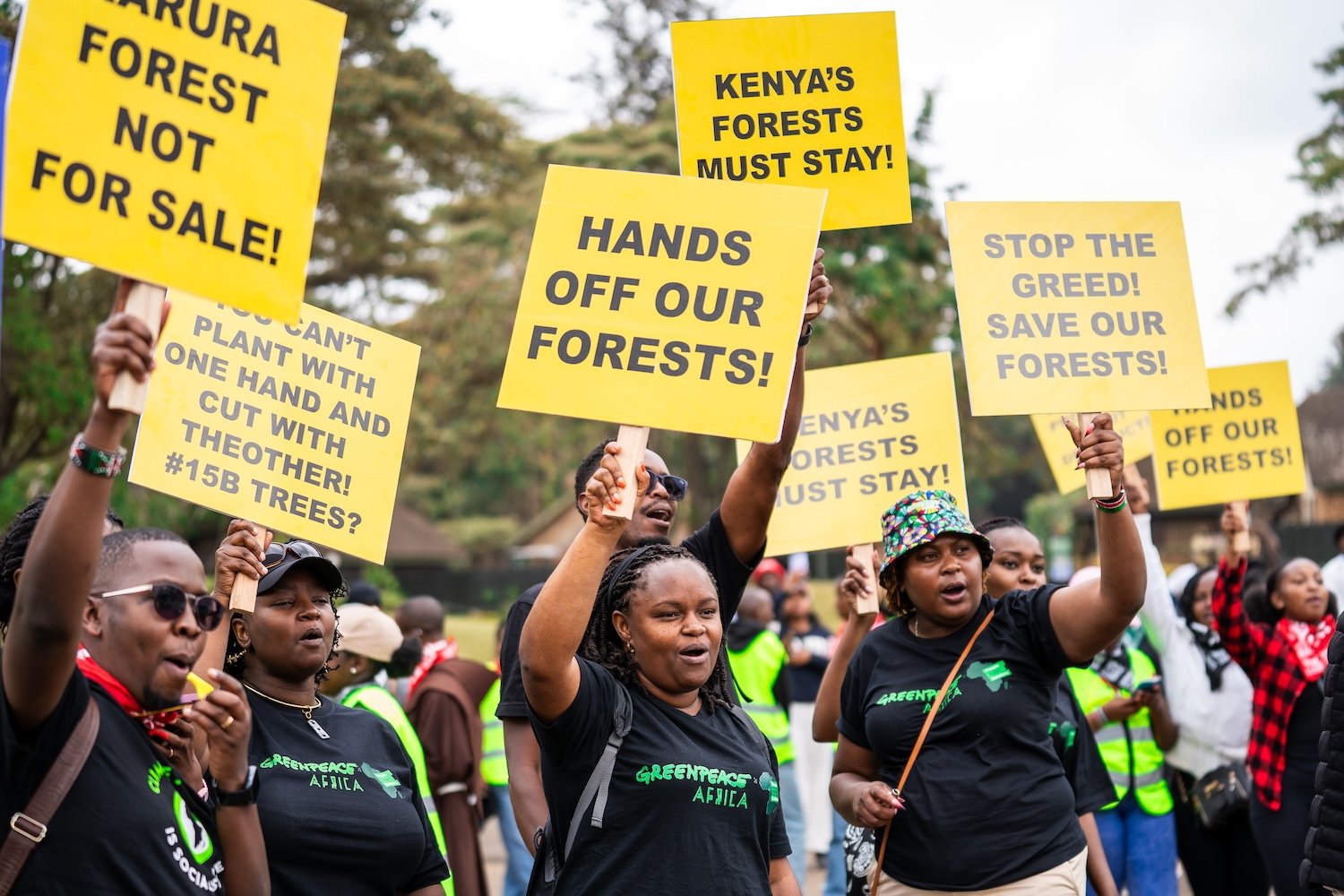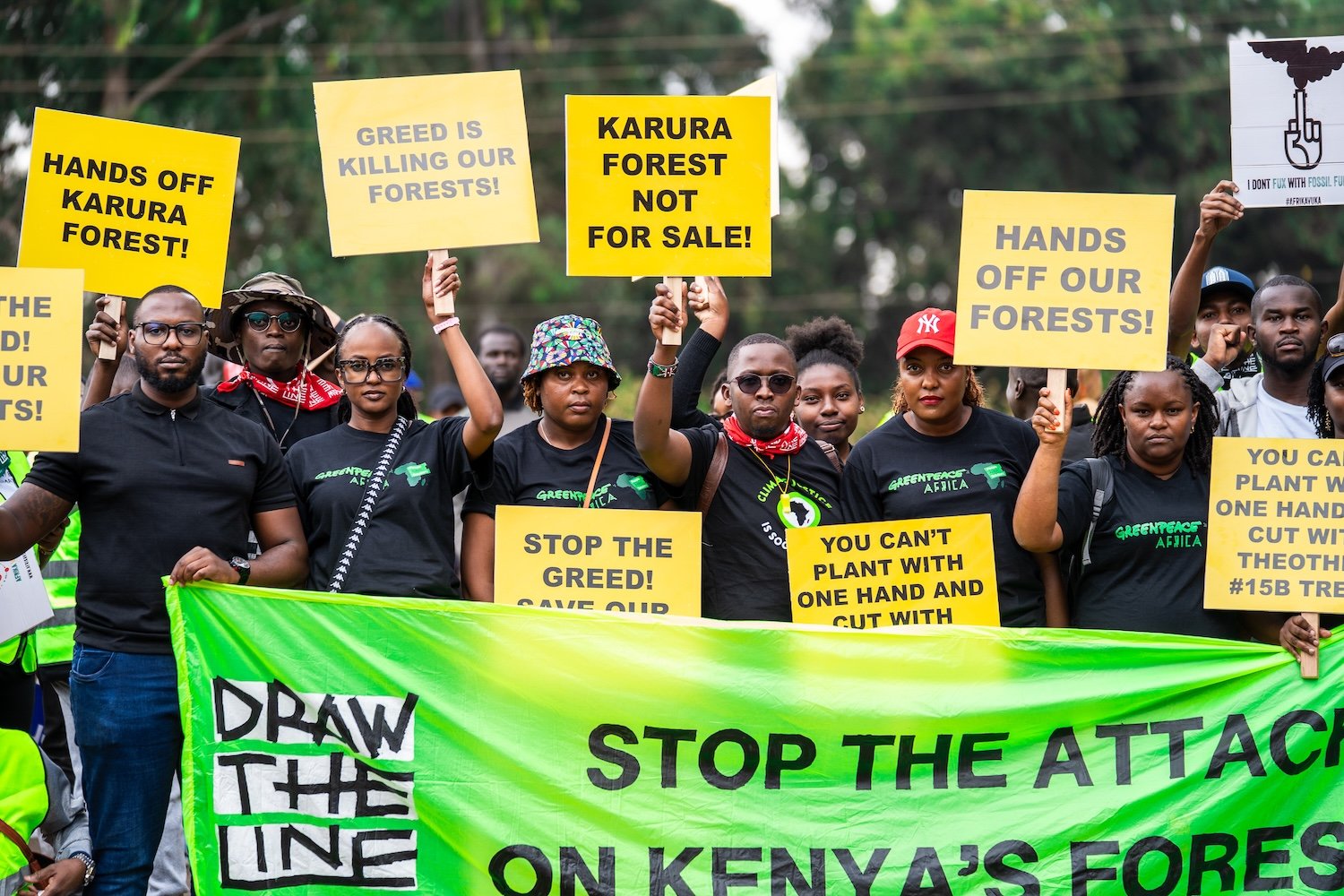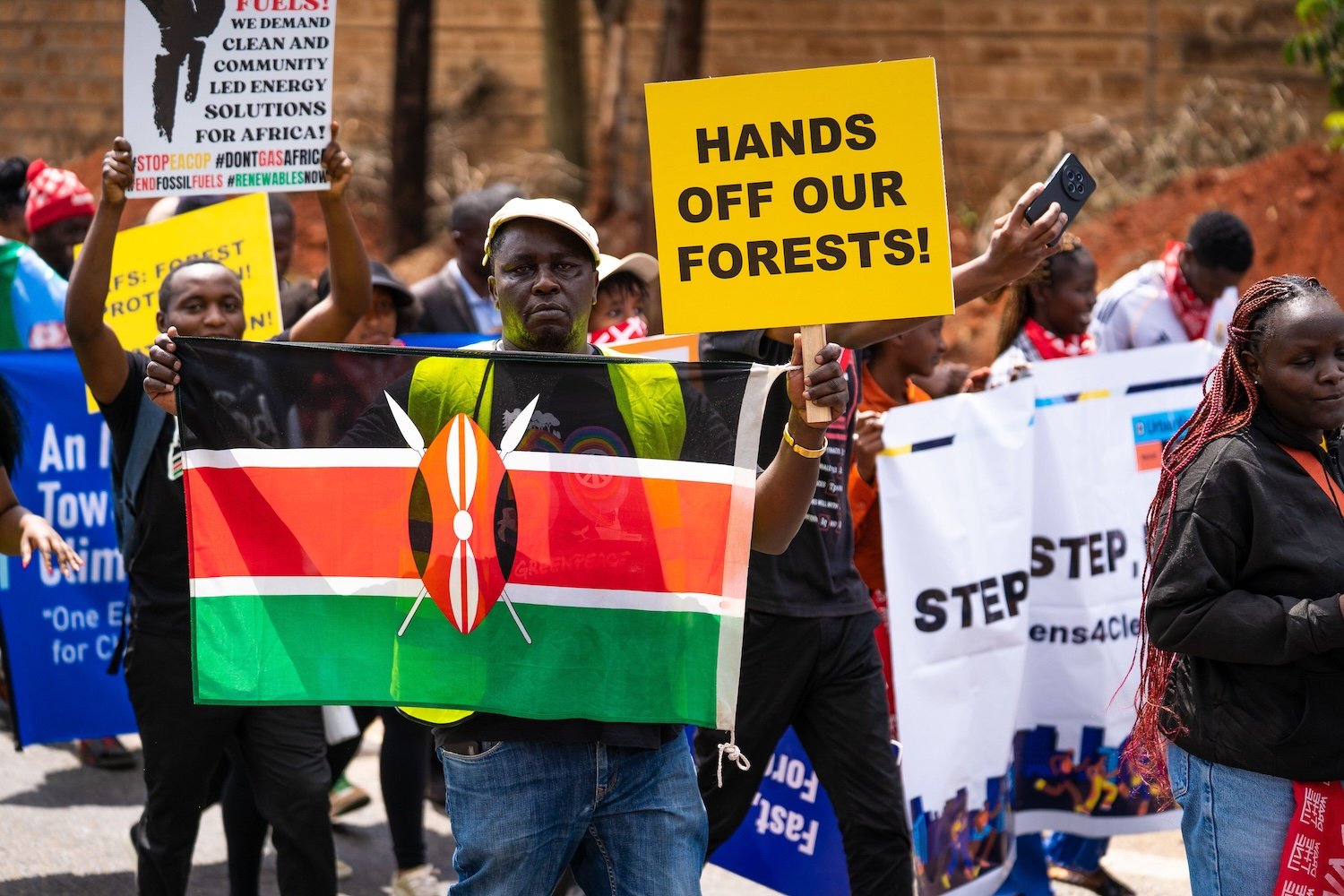It is now 10 years since the UN General Assembly has proclaimed 21 March as the International Day of Forests. It serves as an opportunity for both ordinary people and governments to profess their love for forests and their commitment to their protection.
Deforestation in a SudCam’s concession area. Photo: © GreenpeaceAfrica/Sylvie Djacbou
Only a couple of weeks after this celebration, the third part of the Sixth Assessment Report by the Intergovernmental Panel on Climate Change (IPCC) was published, drawing on the work of thousands of scientists. The report shows much is left to do if the world is to avoid the pathway to a complete climate breakdown by missing the goals of the Paris Agreement on climate change (limiting global warming to 1.5c or 34.7F and in any case under 2c or 35.6F).
@GP team in the field. Working with indigenous communities to document the encroachment into their ancestral land by logging companies in order to support secure their land & livelihood.
As the continent bound to suffer most from extreme weather events, water scarcity, coastal erosion, internal migration and conflict, Africa needs more action and less empty promises on international days, conferences and reports. One of the goals of the UN Agenda 2030 is to increase the world’s forest area by 3% (120 million hectares), as well as enhancing forest-based economic, social and environmental benefits. But the reality in Central Africa puts this agenda and its accompanying pledges in a hideous light.
Forests are also clearly highlighted as a solution by the IPCC, along with warnings about false solutions: “Growing forests and preserving soils… will not remedy the situation. Tree-planting cannot compensate for the continuous emissions from fossil fuels.”It is true. It’s impossible to plant our way out of the climate crisis. It takes centuries for newly planted trees (if they even survive) to be able to absorb carbon on the scale that rainforests do and does nothing for halting biodiversity loss. Recognizing the rights of Indigenous Peoples and other local communities in defending rainforests is the most ethical and effective ecological policy choice.
Yet the Congo basin rainforest, the world’s second largest, might disappear in 2100 because of an extremely high deforestation rate. In 2020 alone, more than 600,000 hectares of primary forest were lost in the Congo basin. Just look at the numbers: no amount of pompous statements, pledges, alliances, initiatives and accords can hide that grim reality.
Last year in Cameroon, the Government made some voluntary commitments in revising its National Determined Contribution (NDC) to reduce emissions by 35% and also secure 30% of its forests by 2030. Yet the same government is also granting more than 400,000 hectares of forest for logging (a forest area about 40 times the size of Paris), as well as granting more forest concessions like the Camvert project (planning to replace about 60,000 hectares of pristine forest with a huge palm oil plantation in the south region of Cameroon).
In the neighboring Democratic Republic of Congo (DRC), the government signed a USD 500 million agreement with donor countries to protect the rainforest. During the first two days of the COP26 in Glasgow, President Joe Biden and Prime Minister Boris Johnson rushed to pose for a photo with Congolese President Felix Tshisekedi. Yet no amount of camera flashes can hide the fact that the agreement allows the country to lift a 20-year-old ban on new logging concessions, a ban meant to safeguard the forest from becoming a circus of illegalities, corruption and crimes against the environment. The “forest protection” agreement also allows replacing forests with oil blocks.
Primary Forest lost in Cameroon between 2002 and 2020 in Cameroon, @Info Congo and GFW 2021.
And then in countries like the Republic of Congo or Gabon, one must consider the countless “legal” but equally destructive concessions, including the non-credible FSC label granted.
To the communities and rich biodiversity in rainforests, it makes no difference if trees are removed “legally” or not. The carbon stored in a forest’s biomass is released into the atmosphere as carbon dioxide regardless of whether that forest was trashed under an “international agreement” or not.
Governments in Central Africa, along with Western donors, love to say that deforestation can at least drive communities out of extreme poverty. But science doesn’t follow this political rhetoric. The last (IPCC) report estimates that in the next decade alone, climate change will drive 32-132 million more people into extreme poverty. Global warming will jeopardize food security, as well as increase the incidence of heat-related mortality, heart disease and mental health challenges.
Before the next festival of love for forests shows up in their calendars, our politicians must think of alternative pathways to really pull communities out of poverty. To start with, they should broaden the use of clean technologies to give universal access to energy and shift to ecological agriculture so food systems don’t ruin our planet. We now know countries can grow their economies while reducing emissions. Achieving sustainable development and eradicating poverty in Central Africa means ending deforestation and adopting equitable climate policies in reality. Only then would the celebrations and the photo-ops make sense.
Sylvie Djacbou Deugoue (Cameroon) is a forest campaigner and Lamfu Fabrice Yengong (Cameroon) is a researcher at Greenpeace Africa



